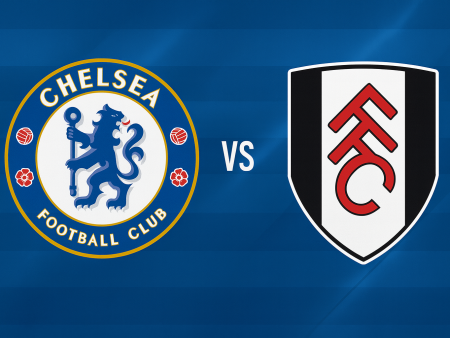How Pep Guardiola’s Substitutions Sealed the Premier League Title: A Tactical Breakdown
The closing moments of the 2021-22 Premier League season delivered one of the most dramatic turnarounds in recent football history. With just 15 minutes remaining, Manchester City appeared to be surrendering the title to Liverpool. However, a trio of inspired substitutions by manager Pep Guardiola flipped the script and secured City’s fourth league crown under his leadership. This article examines the strategies behind those decisive changes—and how coaches at every level can apply similar logic to make effective game-altering decisions.
The Power of Impactful Substitutions: City’s Championship Comeback
As the pressure mounted late in the final match, Guardiola made three crucial changes:
– Oleksandr Zinchenko replaced Fernandinho at halftime. The Ukrainian immediately refreshed City’s left flank, providing more attacking drive and width.
– Raheem Sterling entered for Riyad Mahrez, injecting pace and directness down the right side, causing problems for Aston Villa’s defenders.
– Ilkay Gundogan, renowned for clutch goals, was brought on and became instrumental in City’s comeback.
Within six minutes, all three substitutes directly contributed to City’s three goals:
– Sterling supplied a precise cross that Gundogan finished with a header.
– Zinchenko set up Rodri for City’s equalizer.
– Kevin De Bruyne delivered the assist for Gundogan’s winning tap-in.
Each replacement addressed a specific tactical need—demonstrating how the right move at the right moment can shift the momentum of a game and clinch major trophies.
Key Principles for Mastering Substitutions
The art and science of substitutions go far beyond simple player rotation. Effective changes require acute tactical awareness, timely decision-making, and detailed preparation. Here are three essential elements every coach should consider:
Identifying Problems and Opportunities
Successful substitutions start with a deep understanding of the match’s flow. Coaches must continuously analyze both their team’s performance and the opponent’s strategy, asking questions such as:
– Which players are struggling to influence the match, and do they need a direct replacement or a totally different tactical option?
– Which squad members have a history of high impact, even if currently underperforming?
– Where are the spaces or weaknesses in the opposition setup that can be exploited?
– Can the current formation or plan be tweaked before making personnel changes?
– What are the strengths and limitations of potential substitutes, and can they solve the specific tactical problems being faced?
By consistently reviewing these factors—especially around halftime—managers can identify the most promising paths to turn the game in their team’s favor.
Optimal Timing and Proactive Decision-Making
One of the biggest pitfalls for coaches is waiting too long to make changes. Research indicates that substitutions made before the 58th minute have the highest chance of reversing a deficit. When managers hesitate, hoping their starting lineup will adapt and recover, they often end up reacting to goals conceded or disciplinary issues—missing crucial windows to alter the outcome.
The 2021-22 season finale highlighted this principle perfectly: Guardiola introduced Zinchenko right after the break and followed up quickly with Sterling—both before the hour mark. This proactive approach gave the new players time to adjust and maximized their impact when it mattered most. Coaches should strive to anticipate problems rather than respond once it’s too late, empowering substitutes to make a difference when the team still has time to reshape the flow of the game.
Thorough Preparation and Clear Communication
Pre-match planning is essential, but rigid substitution schedules often fail to account for the unique demands of each game. Instead, coaches should prepare players as ‘game changers’ by:
– Assigning clear roles and expectations for substitutes with detailed tactical instructions prior to their introduction.
– Keeping potential subs engaged throughout the game—using video, stats, or real-time feedback on specific moments and positional examples.
– Supporting their mental readiness so they feel included, confident, and aware of how they can influence the match.
– Ensuring physical preparedness through dynamic warm-ups and personalized routines, minimizing injury risks and maximizing sharpness.
Clubs are increasingly investing in specialist substitution coaches whose focus is to brief, support, and motivate players coming off the bench. For example, AFC Wimbledon appointed a dedicated substitutions coach to streamline the process and boost performance. Similarly, managers like Jurgen Klopp have excelled at nurturing ‘super subs’ such as Divock Origi, who despite infrequent starts, delivered decisive goals in high-pressure moments because they always understood their value and responsibility.
Beyond Tactics: The Human Side of Substitutions
Making effective substitutions requires both strategic acumen and a keen sense for player psychology. Squad members not in the starting eleven must feel respected, motivated, and part of the collective mission. Consistent communication, transparent expectations, and inclusion in match preparation all help maintain morale and team unity. When bench players embrace their opportunity, they’re far more likely to respond with energy and focus when called upon.
Appropriate physical preparation is also vital. Substitutes must execute specific warm-up drills and activation routines to reduce injury risk and sharpen mental focus. A lack of preparation in this area can compromise performance and lead to unnecessary setbacks.
Conclusion: Turn Substitutes Into Game Changers
Substitutions are a powerful tool in a coach’s arsenal, capable of altering a match’s destiny and transforming a team’s season. By carefully observing the game, acting decisively, and preparing substitutes both tactically and psychologically, coaches can replicate the kind of last-minute heroics that defined Manchester City’s title-winning finale.
Embedding these habits into team culture ensures every player feels empowered and ready to contribute—regardless of when their number is called. With thorough preparation and expert decision-making, any coach can use substitutions to deliver game-changing results when it matters most.









